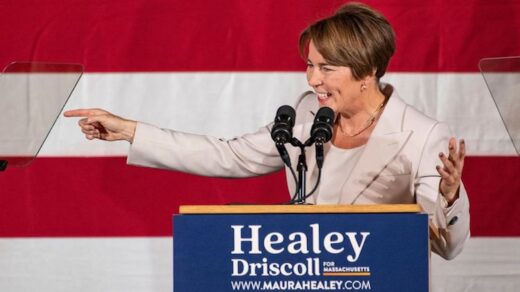BIPOC, LGBTQ+ Seniors Cannot Wait Any Longer for COVID Vaccine
It’s well-known that older Americans have been especially hard hit by the COVID-19 pandemic – in fact, they are the most likely to be hospitalized and die from the virus. While it has been reassuring to see older Americans (along with health care and longterm care workers) prioritized in the initial vaccine distribution, we are deeply concerned that a life and death reality is being overlooked: LGBT and BIPOC (Black, indigenous, and people of color) older people are especially vulnerable and thus require particular attention in our country’s COVID-19 immunization strategies. That attention is lacking to date, which is particularly troubling given that the heightened vulnerabilities of diverse elder communities are well documented.
For starters, LGBT and BIPOC older people are more likely than older Americans in general to have underlying conditions that make them more vulnerable to adverse consequences from COVID-19, including higher rates of diabetes, cardiovascular disease, cancer, HIV/AIDS, and obesity. LGBT older people have higher rates of tobacco use and mental health issues. LGBT and BIPOC older people are more likely to age in poverty, with the attendant consequences of more significant challenges accessing health care and nutritious food. Many LGBT older people are acutely isolated since they are much less likely than older Americans in general to have children, and much more likely to live alone and be disconnected from their families of origin. Given these disparities, it’s not surprising that older Americans from diverse communities are hit hardest by the pandemic. Recent data indicates that people of color infected by COVID are much more likely to die than white patients. Because public health authorities misguidedly do not collect COVID-related data on sexual orientation and gender identity, reliable statistics are not available for LGBT people.
Special attention for particularly vulnerable older people is required not just because of disparities in health, poverty, and social isolation, but also because of the need to overcome widespread mistrust. Due to the tragically weak federal response to the pandemic and the lack of a national strategy, trust in the COVID vaccines is a problem for the country. Only 63 percent of Americans currently indicate a willingness to get immunized against the virus. This trust deficit is even greater among LGBT and BIPOC older adults, with non-white adults being among those least willing to be vaccinated. This should come as no surprise. Experiencing discrimination and stigma throughout one’s life leads to high levels of mistrust in the medical profession and government among LGBT and other diverse elders. As a result, older people from diverse communities are less likely to access preventive care and services. The federal government has exacerbated this problem in recent years with the Trump administration’s regular attacks on racial and ethnic minorities and by stripping anti-discrimination protections from LGBT people.
The public health and governmental responses to the COVID-19 pandemic have eroded trust even further with shortages of testing in communities of color and poor cultural competency in health alerts. Additionally, messaging from public officials (including the White House) has been highly politicized and in conflict with public health messages.
Given these realities, we call on public health and governmental authorities responsible for COVID-19 vaccine distribution to provide special attention and outreach to older people who are LGBT and/or people of color. State and municipal vaccine distribution plans should incorporate specific and consistent attention to these older populations. Proactive communication about the availability of the vaccine must be specifically tailored to diverse elder communities. Public health and government must partner with community-based organizations with credibility with LGBT and BIPOC elders to reach these populations and ensure that they have sufficient access to the vaccines as soon as possible. The Centers for Disease Control’s vaccine task force must expand federal attention to particularly vulnerable populations by adding a robust focus group for the LGBT community.
These kinds of strategies are straightforward in their implementation, and we know from experience that they work. In the early days of the pandemic, Black residents of Michigan accounted for more than 40 percent of COVID-19 deaths, while making up less than 14 percent of the state’s population. In response, Michigan formed a racial disparities task force that focused on outreach to ensure equitable access to COVID-19 testing and tailored messages to communities of color about mask-wearing and other preventing measures. The task force’s efforts are widely credited with helping to reduce the COVID-19 death rate among the state’s Black residents by 75 percent.
It’s time to apply these same kinds of tailored strategies to ensure that LGBT and BIPOC older people have every opportunity to be vaccinated against COVID-19 as quickly as possible. We know what must be done and how to do it. Now is the time to act.
Michael Adams is the CEO of SAGE and Yanira Cruz is President and CEO National Hispanic Council on Aging.
Original Article on The Advocate
Author: Michael Adams and Yanira Cruz




